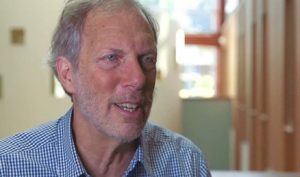Indigenous Oral Traditions From The Huasteca, Mexico
 This paper deals with indigenous oral traditions in Mexico. It addresses issues of indigenous languages and how they can be documented, preserved and revitalized through projects about oral traditions in a national context in which there is a renewed discussion on multiculturalism and cross-cultural understanding.
This paper deals with indigenous oral traditions in Mexico. It addresses issues of indigenous languages and how they can be documented, preserved and revitalized through projects about oral traditions in a national context in which there is a renewed discussion on multiculturalism and cross-cultural understanding.
In Mexico, the discussion of multiculturalism centers on ‘indigenous issues’, specifically on how indigenous peoples should integrate into the so-called modern, more westerly-orientated rest of the nation. In Mexico, indigenous cultures and languages are still systematically discriminated, as they are often seen as irrelevant remnants of a past that have, at most, mere folkloristic value. Since the 1990’s, public policies regarding indigenous issues underwent a change and now focus on concepts of multiculturalism in order to favor a more equal position for indigenous languages and cultures.
The new policies were adopted after national pressures like the 1994 Zapatista uprising, and followed up on international interests in the situation of indigenous peoples, such as shown through the festivities around the 500th Anniversary of the Discovery of America by Columbus in 1992, or in the declaration of the UN’s First and Second Decade of the Indigenous Peoples (1995-2014). They enhance a novel discourse that includes concepts like cultural diversity, interculturalism, intangible heritage, and other terms that are in accordance with the terminology of international conventions on indigenous issues.
Is Greece On The Road To Recovery, Or Will It Remain Trapped By Debt? An Interview With Economist Costas Lapavitsas
In early 2010, Greece became technically bankrupt as it was shut out from borrowing in the international credit markets because of skyrocketing deficits and huge public debt levels. Since then, the country has been under bailout programs created by the European Union (EU), the European Central Bank (ECB) and the International Monetary Fund (IMF) in order to keep it inside the eurozone. However, the bailout programs have been accompanied by brutal austerity measures that have had a catastrophic effect on Greek economy and society. Yet the current pseudo-leftist Syriza government — which has been enforcing the EU neoliberal agenda since coming to power in 2015, with greater dedication than any other Greek government since the outbreak of the crisis — declares today’s economic situation a “success story.” However, not everyone is buying the official story.
Costas Lapavitsas is a Marxist economist at the University of London. Since the outbreak of the eurozone crisis in 2010, he argued consistently in favor of Greek default and exit from the eurozone as the key to a left-wing strategy to confront the crisis. He produced much analytical work and his arguments had considerable influence within the left, but also more widely across Greek society. For several years, his name became widely associated with these policies and had influence within Syriza, even though its leadership was completely opposed to this strategy. In January 2015 he accepted an invitation by Syriza to join its electoral ticket as an independent, and was elected to the Hellenic Parliament with a great majority in his electoral region of Imathia.
Lapavitsas served as a member of parliament for seven months and was one of the leading voices in the country in favor of a radical course of action that would bring a political rupture with the lenders. The Syriza leadership, and especially the circle of Alexis Tsipras, tried systematically to marginalize him, keeping him away from positions of authority. When the Syriza leadership surrendered to the lenders in August, 2015, Lapavitsas left the party, together with more than 30 others. They were the true left of Syriza and tried to create an alternative left-wing party called Popular Unity. Unfortunately, their efforts have not been successful, partly because of their own organizational weaknesses, and partly because a disillusionment with the left prevailed in Greek society after the surrender of Syriza.
Is Greece on the road to economic recovery? In this interview, Lapavitsas suggests it is simply ludicrous on the part of a former left party to speak of a neoliberal success story for a country mired in poverty and debt. Read more
Chimamanda Ngozi Adichie ~ The Danger Of A Single Story
Our lives, our cultures, are composed of many overlapping stories. Novelist Chimamanda Adichie tells the story of how she found her authentic cultural voice — and warns that if we hear only a single story about another person or country, we risk a critical misunderstanding.
TEDTalks is a daily video podcast of the best talks and performances from the TED Conference, where the world’s leading thinkers and doers give the talk of their lives in 18 minutes. Featured speakers have included Al Gore on climate change, Philippe Starck on design, Jill Bolte Taylor on observing her own stroke, Nicholas Negroponte on One Laptop per Child, Jane Goodall on chimpanzees, Bill Gates on malaria and mosquitoes, Pattie Maes on the “Sixth Sense” wearable tech, and “Lost” producer JJ Abrams on the allure of mystery. TED stands for Technology, Entertainment, Design, and TEDTalks cover these topics as well as science, business, development and the arts. Closed captions and translated subtitles in a variety of languages are now available on TED.com, at http://www.ted.com/translate. Watch a highlight reel of the Top 10 TEDTalks at http://www.ted.com/index.php/talks/top10
Op de vleugels van de draak – Globaliseringslezing 2013
 In de lente van 2009 kocht ik een Emirates Airlines-ticket voor een reis van twee maanden naar Dubai en Guangzhou – de Chinese havenstad in de Pareldelta, bij ons beter bekend als Kanton. De jaren daarvoor had ik veel tijd doorgebracht in Congo en drie boeken over het land geschreven. Ik was blij iets nieuws te gaan zien, maar ook enigszins beschroomd: Dubai kende ik al, maar het was mijn eerste reis naar China. Kon ik er op dit moment in mijn geschiedenis zomaar een nieuw gebied bijnemen, zou ik mezelf naar binnen kunnen wurmen zoals ik in Congo had gedaan en me zo klein maken dat ik kon kijken in plaats van bekeken te worden?
In de lente van 2009 kocht ik een Emirates Airlines-ticket voor een reis van twee maanden naar Dubai en Guangzhou – de Chinese havenstad in de Pareldelta, bij ons beter bekend als Kanton. De jaren daarvoor had ik veel tijd doorgebracht in Congo en drie boeken over het land geschreven. Ik was blij iets nieuws te gaan zien, maar ook enigszins beschroomd: Dubai kende ik al, maar het was mijn eerste reis naar China. Kon ik er op dit moment in mijn geschiedenis zomaar een nieuw gebied bijnemen, zou ik mezelf naar binnen kunnen wurmen zoals ik in Congo had gedaan en me zo klein maken dat ik kon kijken in plaats van bekeken te worden?
Viereneenhalf jaar later is er mijn nieuwe boek Op de vleugels van de draak, waarin ik beschrijf wat globalisering betekent in het leven van Afrikanen en Chinezen die heen en weer reizen tussen Afrika en China.
Ik hou altijd een lijst bij van de plaatsen die ik onderweg aandoe en de tijd die ik er doorbreng. Zelden is de rij zo lang geweest, zelden figureerden er zoveel namen op. Changsha, Jinhua, Bagua Cun, Wuhan, Yiwu – ik had een duizelingwekkende vaart en kwam een grote hoeveelheid mensen tegen, die net als ik onderweg waren en vaak evenveel reden tot schroom hadden als ik, al leken ze daar aanmerkelijk minder last van te hebben.
De Congolese commerçant Henri, die in Dubai een container vollaadde met schoonheidsproducten, had Engels geleerd uit een zakwoordenboekje tijdens de vlucht van Kinshasa naar Addis Abeba. Hij begreep aanvankelijk niet waarom mensen in Dubai ‘nee’ antwoordden op alles. ‘I no, I no’ – pas na een tijdje snapte hij dat ze ‘I know’ zeiden. De Chinese Shudi had na twaalf jaar Zuid-Afrika weliswaar een aarzelende Engelse woordenschat opgebouwd, maar toen ik na onze ontmoeting zei: ‘I hope to see you again one day’, stond hij hulpeloos tegenover me en vroeg: ‘One day? Which day: Monday, Tuesday?’
Ik kwam terecht in een wereld vol mythes en sterke verhalen. De Malinese commerçant Cheikhna vertelde me dat de Chinezen pas vis begonnen te eten nadat de Malinese president Modibo Keïta in de jaren zestig tijdens een reis naar zijn geliefde China een aantal vissen meenam voor Mao, die ze dankbaar uitzette in een vijver. Shanshan, een Chinese studente Afrika Studies, bekende me dat haar moeder bang was haar naar Afrika te laten vertrekken: ze dacht dat haar dochter daar zwart zou worden en haar kansen op de Chinese huwelijksmarkt zou verspelen.
Soms voelde ik me als de Chinese migrant die op een luwe avond in Guangzhou neerzeeg op zijn geruite koffer en verward om zich heen keek naar het voorbijrazende verkeer op de Huanshi Zhongstraat – net een stripfiguur die uit het hemelruim was gevallen en zich in een halo van sterretjes afvroeg waar hij in godsnaam terecht was gekomen.
Wat zocht ik, wat hield me al die jaren in beweging? Het is soms goed achteraf stil te staan en na te gaan hoe het allemaal begon. Read more
How To Achieve Zero Emissions, Even If The Federal Government Won’t Help
With Donald Trump in the White House, the prospects for fighting climate change have never been any bleaker in the US. Yet there are options available to state governments to move forward with the greening of the economy even without federal support. This point is made crystal clear in two studies produced recently by economist Robert Pollin and some of his colleagues at the Political Economy Research Institute (PERI) at the University of Massachusetts at Amherst for the states of Washington and New York. In this exclusive interview for Truthout, Pollin explains the significance of Green New Deal programs.
C.J. Polychroniou: Bob, two new studies on fighting climate change have been produced by you and two PERI researchers for the states of New York and Washington. How did these studies come about?
Robert Pollin: These were both commissioned studies. For the New York study, the commissioning group was New York Renews, which is a coalition of over 130 organizations in New York State, including labor unions, environmental groups and social justice organizations. For the Washington State study, three important groups within the US labor movement commissioned the study — the United Steelworkers, Washington State Labor Council of the AFL-CIO and the Tony Mazzocchi Center for Health, Safety and Environmental Education (TMC). Tony Mazzocchi was a great visionary labor leader with the Oil, Chemical and Atomic Workers International Union (OCAW — [which] has since merged into the United Steelworkers), who fought to link the aims of working people with those of environmentalists.
It is not an accident that my co-workers and I were asked to do these similar studies at basically the same time. In both cases, the groups supporting the studies are advancing ambitious green economy programs within their respective states. It is obvious that nothing good on climate change is going to be coming out of the federal government under Trump. It is equally obvious that we can’t wait around on climate issues (and many other matters) until somebody less awful gets into the White House. We therefore have to take the most forceful possible actions at the level of state politics. This is what the coalitions are doing in both New York and Washington States.
It is also significant that, with both studies, our priority was to show how a viable climate change project can be completely compatible with — indeed, supportive of — a pro-labor agenda. Trump and others on the right have feasted on the divides between labor and environmentalists, claiming that if you are for the environment, then you have to be against working people and their communities. These studies show in great detail (some might even say excruciating detail) that these Trump claims are flat-out wrong.
I will emphasize though that we have to be very careful in making this case (and thus the excruciating detail in these studies). In particular, there is no getting around that, if we are going to stop burning fossil fuels to produce energy — as we absolutely must to have any chance of stabilizing the climate — the jobs of people in the coal, oil and natural gas industries — along with many other allied sectors of the economy — will be lost over time. We need to forthrightly confront this fact, but then advance beyond it, to develop what Tony Mazzocchi himself termed a “just transition” for workers and communities who will be hurt by the necessary environmental transitions. The overarching point of both of these studies is precisely to show how we can stop burning fossil fuels that produce carbon dioxide (CO2) emissions that are the primary cause of climate change, and to accomplish this in ways that expand job opportunities overall while also creating a just transition for workers and communities that are currently dependent on the fossil fuel industry. Read more
TED@ BCG Paris ~ Neha Narula ~ The Future Of Money
 What happens when the way we buy, sell and pay for things changes, perhaps even removing the need for banks or currency exchange bureaus? That’s the radical promise of a world powered by cryptocurrencies like Bitcoin and Ethereum. We’re not there yet, but in this sparky talk, digital currency researcher Neha Narula describes the collective fiction of money — and paints a picture of a very different looking future.
What happens when the way we buy, sell and pay for things changes, perhaps even removing the need for banks or currency exchange bureaus? That’s the radical promise of a world powered by cryptocurrencies like Bitcoin and Ethereum. We’re not there yet, but in this sparky talk, digital currency researcher Neha Narula describes the collective fiction of money — and paints a picture of a very different looking future.
Neha Narula is director of research at the Digital Currency Initiative, a part of the MIT Media Lab where she teaches courses and leads cryptocurrency and blockchain research. While completing her PhD in computer science at MIT, she built fast, scalable databases and secure software systems, and she spoke about these topics at dozens of industry and research conferences.
In a previous life, Narula helped relaunch the news aggregator Digg and was a senior software engineer at Google. There, she designed Blobstore, a system for storing and serving petabytes of immutable data, and worked on Native Client, a system for running native code securely through a browser.




